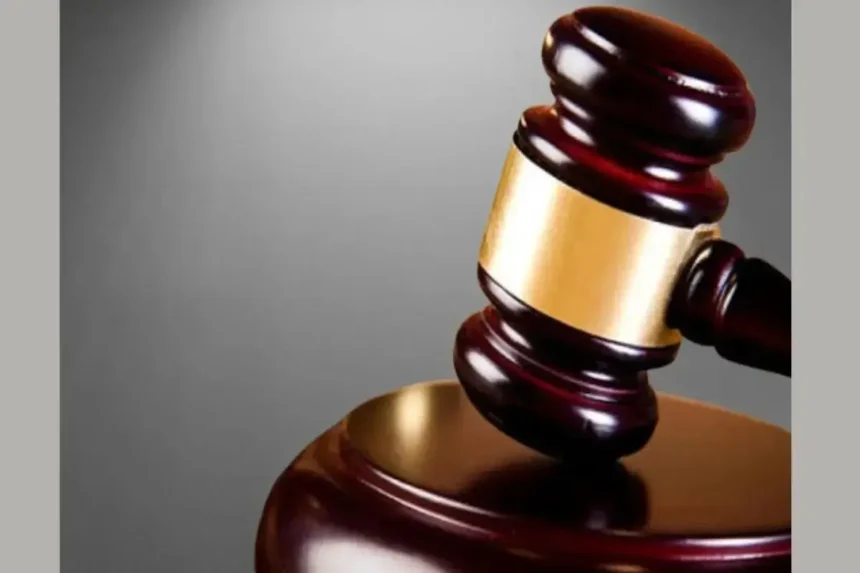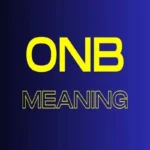Introduction:
The C.W. Park USC lawsuit has drawn significant attention within both academic and legal circles, raising questions about ethics, governance, and legal responsibilities within higher education institutions. This lawsuit, involving c.w. park usc lawsuit, a respected marketing professor at the University of Southern California (USC), has put a spotlight on the internal workings of academic institutions and the accountability of faculty members and administrators.
In this article, we will delve into the key details of the C.W. Park USC lawsuit, its legal implications, and its potential impact on the academic community. We will explore the reasons behind the lawsuit, discuss the key concepts related to academic legal cases, and examine the broader effects such lawsuits can have on universities and the academic profession.
Detailed Explanation of Key Concepts:
Background of the C.W. Park USC Lawsuit
The lawsuit involving C.W. Park is a complex legal case rooted in disputes over academic governance, faculty rights, and administrative decisions. c.w. park usc lawsuit is a well-known figure in the field of marketing, having served as a professor at USC’s Marshall School of Business. His research in branding and consumer psychology has earned him respect within academic circles, but the lawsuit has brought his professional conduct into question.
The case centers on allegations related to administrative decisions, professional conduct, and potential breaches of faculty contract agreements. Park claims that USC’s administration violated his rights as a faculty member by implementing policies and actions that negatively impacted his academic career. The lawsuit has sparked debates about academic freedom, faculty governance, and the rights of professors in higher education institutions.
Key Legal Concepts in the Case
To better understand the C.W. Park USC lawsuit, it is essential to explore several legal and academic concepts that play a central role in the case:
- Academic Freedom: At the heart of many lawsuits involving professors and universities is the concept of academic freedom. This principle protects faculty members’ rights to express their views, conduct research, and teach without interference or fear of reprisal. Park’s lawsuit may involve claims that his academic freedom was violated by USC’s administration.
- Faculty Governance: Faculty members often play a role in the decision-making processes of their institutions, particularly in matters related to academic programs, research, and policy development. Disputes over faculty governance can arise when professors believe their input is being ignored or overruled by university administrators, as Park may have experienced.
- Breach of Contract: Many lawsuits involving professors and universities hinge on alleged breaches of contract, particularly in cases where faculty members believe their employment agreements or tenure rights have been violated. Park’s case may involve such claims, arguing that USC breached the terms of his faculty contract.
- Defamation and Reputational Harm: In cases involving well-known academics, defamation claims can arise when negative publicity or statements made by university officials harm the professor’s professional reputation. Park may argue that actions taken by USC have damaged his standing in the academic community.
Statistical Data on Academic Legal Disputes
Academic lawsuits, like the one involving C.W. Park, are not isolated incidents. According to data from the American Association of University Professors (AAUP), legal disputes between faculty members and universities have been on the rise in recent years. The majority of these cases involve issues of academic freedom, tenure, and contract disputes. Studies show that 45% of lawsuits involving faculty members are settled out of court, while 30% go to trial, with outcomes often depending on the specific legal framework governing the institution.
You may also like: https://sitthemoon.com/betechit-tech-news/
Importance and Benefits:
Why the C.W. Park USC Lawsuit is Significant
The C.W. Park USC lawsuit is significant for several reasons, not only because of the high-profile nature of the case but also because of its implications for the broader academic community. Legal disputes involving prominent professors like Park can set important precedents for how universities handle issues related to faculty governance, academic freedom, and employment agreements.
- Precedent for Academic Freedom Cases:
If Park’s claims involve violations of academic freedom, the case could set a precedent for how future legal disputes in this area are handled. Courts may need to balance the rights of faculty members to express their views and conduct research freely with the university’s right to govern and manage its operations. - Impact on University Governance:
The lawsuit also highlights issues of faculty governance and the extent to which professors have a say in university decision-making. The outcome of the case could influence how universities structure their governance systems and involve faculty in administrative decisions moving forward. - Protection of Faculty Rights:
The case emphasizes the importance of protecting the contractual and employment rights of professors. If Park’s lawsuit succeeds, it may lead to greater scrutiny of how universities handle faculty contracts, tenure agreements, and administrative decisions that affect academic careers.
Benefits of Addressing Legal Issues in Academia
Addressing legal disputes like the C.W. Park USC lawsuit can lead to positive outcomes for both faculty members and universities. By clarifying the legal frameworks governing academic institutions, lawsuits can lead to:
- Improved Governance Practices: Universities may refine their governance processes to ensure that faculty members have a stronger voice in decision-making.
- Stronger Protections for Faculty: Legal disputes can lead to clearer employment contracts and tenure agreements, ensuring that professors’ rights are protected.
- Greater Accountability: Lawsuits can hold universities accountable for their actions, encouraging them to adopt fair and transparent policies when dealing with faculty.
Applications and Use Cases:
Real-World Applications of the C.W. Park USC Lawsuit
The issues raised in the C.W. Park USC lawsuit are not unique to USC. Similar legal disputes have occurred at universities across the country, with many of these cases focusing on academic freedom, faculty rights, and administrative decisions. Here are some real-world examples where similar issues have arisen:
- University of Wisconsin System vs. Faculty:
In a high-profile case, the University of Wisconsin System faced legal challenges from faculty members who claimed that changes to the tenure system violated their rights. The case centered on issues of academic freedom and faculty governance, similar to the claims made by C.W. Park. - University of Illinois Professor’s Academic Freedom Lawsuit:
In 2015, a professor at the University of Illinois filed a lawsuit claiming that the university violated his academic freedom by rescinding a job offer due to his controversial social media posts. The case emphasized the balance between academic freedom and institutional governance, a key issue in Park’s lawsuit. - Columbia University’s Faculty Contract Dispute:
At Columbia University, a group of faculty members filed a lawsuit alleging that the university breached their employment contracts by failing to honor tenure agreements. This case, like the C.W. Park USC lawsuit, highlighted the importance of clear contractual agreements and the legal protections afforded to faculty.
Challenges and Solutions:
Challenges Posed by the C.W. Park USC Lawsuit
The C.W. Park USC lawsuit presents several challenges for both the university and the academic community as a whole. These challenges include:
- Maintaining Academic Integrity:
Lawsuits involving faculty members can tarnish the reputation of academic institutions and call into question their commitment to academic integrity. Universities must find ways to balance the rights of faculty with the need to maintain institutional control.
- Solution: Universities can adopt transparent governance processes and establish clear guidelines for handling disputes involving faculty members to ensure that academic integrity is maintained.
- Legal Costs and Resources:
Legal disputes can be costly and time-consuming for both faculty members and universities. The C.W. Park USC lawsuit is likely to require significant financial resources, which could detract from the university’s academic mission.
- Solution: Universities can minimize legal costs by adopting mediation and conflict resolution processes that address disputes before they escalate into lawsuits.
- Damage to Reputation:
High-profile lawsuits can damage the reputation of both the university and the faculty member involved. In the case of C.W. Park, the lawsuit has attracted negative attention, which could affect his standing in the academic community.
- Solution: Universities and faculty members can work together to resolve disputes privately, avoiding negative publicity and protecting the reputation of both parties.
Conclusion:
The C.W. Park USC lawsuit is a significant case that raises important questions about academic freedom, faculty governance, and the legal responsibilities of universities. As the case unfolds, it will have far-reaching implications for how higher education institutions handle disputes involving faculty members and administrators.
By understanding the key legal concepts involved and considering the potential challenges and benefits, universities can develop better governance practices and protect the rights of their faculty. The outcome of the C.W. Park USC lawsuit will likely influence future legal disputes in academia, making it a case to watch closely.










